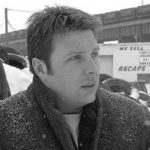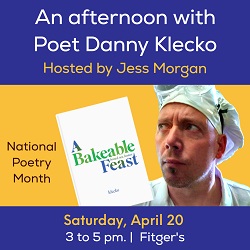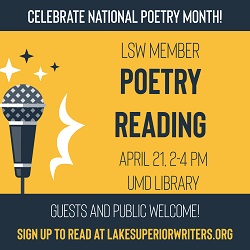Dancing About Architecture
 Writing about music is like dancing about architecture — it’s a really stupid thing to want to do.
Writing about music is like dancing about architecture — it’s a really stupid thing to want to do.
— Martin Mull, maybe?
All good writing strives to say the unsayable.
— Louis Jenkins
I stupidly want to do that thing, and I am ill-equipped for doing it as well as I would prefer, but here we go.
If I still owned a bunch of record albums I’d probably still do a version of what I did with Mom and Dad’s collection when I was a kid: lay or kneel on the carpeted floor in front of the cabinet where the records were stacked vertically spines facing out; flip through the stack, bathing in whooshes of sacred aging-cardboard air as they albums gently slapped against each other; hold worn cardboard covers to my face and inhale in the same way any decent human being does when they pick up an old book; pull out single records or small stacks or maybe the whole collection to flip the covers back and forth back and forth while reading the long notes on the back or the inside and try to figure out how all those words and images and that musty-seductive smell relate to the sounds in the vinyl grooves and the lives of the people who created the sounds; try to figure out what it all meant. What it all means. All of it.
Most of those records seemed so old. The times I’m thinking about are circa 1981, when I was 10, which means the oldest of the 100 or so albums — the Beatles, the Mamas and the Papas, Herb Alpert and the Tijuana Brass, Scott Joplin, the Dave Clark Five, Star Wars and Kramer vs. Kramer and Tess and The Sting and Chariots of Fire soundtracks, the Brothers Four, the New Christy Minstrels, probably a recording of “Rhapsody in Blue” and some non-soundtrack classical stuff, a bunch of white, southern-style-gospel quartets, Peter and the Wolf, Hooked on Classics, Switched-On Bach, most likely some country and a bunch of other stuff I can’t remember but would feel wistful about if I saw it — most of those records weren’t even 20. A fair number of them were younger than me. I was less interested in the newer ones. I preferred the older ones. Everything about the old ones seemed more substantive. More honest.
My turntables are long gone — yay minimalism, right? — but I do still own three albums: Bobbie Gentry and Glen Campbell (1968), Johnny Cash at Folsom Prison (1968), and Rhapsody in Blue and An American in Paris (1959). They’re stacked between a shelf and a cabinet in my office at home. The photos and words are worn. As physical objects they say so much more than digital downloads, of which I have thousands and only feel warmly about when I’m actually listening to them. Even compact discs had liner notes. I ditched my collection of those about three years ago. So it goes. I keep meaning to buy a couple of those album-cover-size-specific frames and mount Bobbie, Glen, and Johnny to my home-office wall. I’m sure I’ll get around to it some day.
The first album on cassette I ever bought, probably from Ayr-Way (before it became a Target) in Huntington, IN, was either Queen’s The Game or Loverboy’s Get Lucky. I got it to go along with the single-speaker Philco radio-cassette player — my first radio of my very own — I bought at a hardware-type store in the same town, where we lived from 1976 until 1983. We had a house in a sub-division built around the Norwood Golf Club, and I earned money by hunting the woods for golf balls then selling them to half-drunk men who were loath to squander their brand-new Maxfli DDHs — the coolest golf balls of the day — on the serious 17th-hole water hazard. I know I bought both those tapes. I know Mom and Dad, trying to raise a couple New-Testament Christian boys in a neighborhood of adults who didn’t share those values and kids who were doing very adult physical and chemical things at very young ages, had deep concerns about both Freddy Mercury’s presence and Mike Reno’s red-leather-clad ass.
Before buying either of those tapes I’d spent a lot of time listening to pop music on local radio and creating clumsy mix tapes with crummy 60-minute BASF cassettes I got from who knows where. Maybe Dad brought them home from his job directing the Huntington Public Library? The radio was usually on a little end table between my bed and the wall, along with a reading lamp and whatever stack of books I was plowing through. Until long after I was supposed to be sleeping I would listen to the hits of 1981, ‘82, or ‘83 on low enough volume to avoid tipping off Mom and Dad. Sometimes, on Friday nights, I’d tune around trying to catch the ends of boys’ high-school-basketball broadcasts out of Fort Wayne, Kokomo, Decatur, Wabash, or Marion. Maybe, depending on the weather, I could get ghostly play-by-play calls and post-game wrap-ups from as far away as Lafayette or Muncie or Elkhart. The scratchy, thin audio and relatively late hour and darkness and unfamiliar names made all those sounds seem like dispatches beamed into my bedroom from some whole other world.
We moved from Huntington to Rochester in early October 1983. If I hear “Total Eclipse of the Heart,” “Up Where We Belong” (which was the soundtrack to my first real kiss, BTW — shout out to Raquel Bowman), “We’ve Got Tonight,” “Come Dancing,” “Lawyers in Love,” or especially “Do You Really Want to Hurt Me,” I deeply inhabit the exact pre-teen melancholy and fear and just general confusion I felt before that move. Everything on Pyromania and Thriller puts me in the melancholic, fearful, confused state I was in after after moving. To be honest I was in the same state before moving. It just took on some new characteristics in Minnesota. I was a sad, scared, confused kid. I’m grateful that music, instead of all the other possibilities, became my go-to escape drug. As Michael Diamond said, “I’ve been through many times in which I thought I might lose it / the only thing to save me has always been music.”
I remember relatively little about the first time I saw and heard Run-D.M.C.’s “Rock Box” video. I know I was in the living room, just up from the front door, in our modest split-level at 1427 48th Street NW, which was basically identical, except for its color and some other small details, to every other house on that stretch of 48th and on a few blocks of streets and avenues south of it. Seems like the video had to have aired on MTV, but I don’t remember us having that channel until late 1984 or early 1985, and I’m pretty certain I saw it in early ‘84 at the latest. Maybe I saw the video later, and we got MTV earlier, and MTV started actually playing rap music earlier than I remember. Maybe I saw it on Friday Night Videos or Night Flight. Doesn’t matter, really.
Like a lot of other white kids from white towns, I’d grown up fascinated with and trying to emulate what I knew of black folks from TV and movies and music and sports. By ‘84 I’d only been around one or two black people in real life, and I had no idea how to act in those moments. Had no idea how, as a generally anxious kid who struggled to express the complex combination of questions and perceptions in his overactive brain, to just be as a human being in the company of another human being. That took me much longer than I’d prefer to have to admit. Halfway through my first year at UMD I got firmly and warmly reprimanded by a black guy a couple years older who was getting tired of a well-intentioned and annoying habit I had: “Hey Chris, man . . . you don’t have to quote rap songs every time you see me. You can just say hi.” I appreciate his candor.
At the time I saw “Rock Box,” I’d heard very little rap music — had somehow avoided “Rapper’s Delight” (which, to be honest, is not a great song) but knew of and could quote the “uh-huh-huh-huh HUH!” part of “The Message.” Something about the Run-D.M.C. song and its video reached into my chest and brain and intangible parts and grabbed me in a way no other music ever had and I still don’t really understand. It was low-key transformational. I’m still trying to make sense of it. Thirty-five years later I still don’t have a vocabulary for that experience or any other aspect of how music feels in my body and brain and soul, which is why this “essay” is just a series of chronological but disjointed random descriptions of experiences instead of smart insight about what it all means. I’m also still trying to make sense of why the Shopko over by Hy-Vee, off 37th and Broadway, had a cassette copy of Run-D.M.C.’s first record, which “Rock Box” is on. It’s the only tape I ever wore out by playing it so often. I memorized it at the expense of my academic and personal progress. I still revere it. I also associate it with some dark days.
The first time I heard “Peter Piper,” the first song on Run-D.M.C.’s third album, Raising Hell, I was sitting on a lower bunk in Cabin 7 at Camp Voyageur on Farm Lake, a few miles outside Ely, MN, listening on headphones attached to a contraband Walkman owned by a kid named Tim. We were supposed to be cleaning the cabin after breakfast. We weren’t supposed to have radios or cassette players. I was 15. It’s the only time I remember my body involuntarily reacting to, and my brain spontaneously and wholly loving, any piece of music. I smiled all over without reservation and I kind of felt like I might vibrate out of my skin the exact instant the beat— heavily based on a sample of Bob James’ “Take Me to the Mardi Gras,” with a heavy 808 kick drum augmenting it — kicked in. I felt emotional and physical sensations I’d never felt while listening to music or doing anything else. It’s never been replicated. I’ve very often behaved unwisely since then, but I’ve always been wise enough to never try chasing that high. I don’t expect to feel it again. I came close during the first song of the Hold Steady’s first sold-out night at First Avenue in October 2006 and the first time I heard Low’s “California.”
I’ve been told by people who know me mostly or only as an adult that they experience a version of me they’ve never known when they’re around me and I hear music that moves me. I think what they mean is that after knowing me as taciturn and reserved — maybe as a bit of a dud — it blows their minds to see me show some affect: to brighten up and smile and express something other than what I’ve been told comes across as heavily modulated self-abnegation. That always baffles me. My experience of myself is as a physical & social oaf who over-expressively blunders throughout life, heart bleeding profusely all over his sleeve, sloppily emoting all over everyone all the time. It’s possible I experience myself differently from how fellow human beings experience me, but I think they’re all wrong.
Last word on Run-D.M.C.: Twin Cities music and culture writer Peter Scholtes, who I desperately and unattractively tried to be exactly like for a while in the early 2000s, once wrote (and not as a compliment) that Run-D.M.C.’s music was always for mooks. For meatheads. I resented that, resistant to what it might mean about me and my deep affection for the group’s music. I still don’t know if I agree with his position on the group, but I accept the characterization of me.
When we moved to Minnesota the basement of our split-level spec house was unfinished, and my downstairs bedroom — the version of it before the basement got all Sheetrocked and carpeted and painted and properly furnished — is still my favorite room of all time. It’s where I really got into the Beatles, listening to Sgt. Pepper’s Lonely Hearts Club Band and the Hard Day’s Night and Help! soundtracks on Mom and Dad’s giant console stereo-turntable unit, which seemed ancient but was only like 15 years old. For whatever reason I most remember what “She’s Leaving Home” felt like on dark winter mornings while getting ready for seventh-grade classes I hated. I didn’t know what I wanted to be different, but I knew I wanted a lot to be so different. Mom and Dad bought me my first CD player in February 1988, for my 17th birthday. They gave me the Hard Day’s Night CD to go along with it. My Beatles thing was quite deep through junior high and high school.
One spring morning in probably 1987, while waiting at the bus stop because Tracy Didion couldn’t pick me up in her red Mustang that day — she was a junior and I was a sophomore, and she treated me a little bit like her kid brother, and I really enjoyed the smell of the Marlboro reds she smoked and how cool she looked while smoking them — I had The Beatles (the White Album) playing in a sweet black-and-red Walkman tucked into the inside pocket of my sweet Levi’s jean jacket. There’s a spot toward the end of the song “Blackbird” where, after a little pause, some lovely birdsong comes in under Paul McCartney’s singing and George Harrison’s (I assume) acoustic guitar. Just at that moment in the song on that morning, I looked up to see eight or 10 Canada geese heading north in a V. It looked like they were singing the songs of other birds. It was cool.
That Rochester bedroom was always filled with music and the feelings it filled me with. Quiet Riot’s Metal Health and AC/DC’s Back in Black. I went through a period of simultaneously thinking the Nylons and Stryper and the Dead Milkmen were the coolest. Tried to get into Dweezil Zappa for like five minutes. Studied rap mixes bootlegged from big-city radio stations and delivered eighth-or-ninth-hand to me through a couple guys at school. I had so little context for so much of what was happening in those rap songs; every now and then, more than 30 years later, I come to a realization about what a line actually said or a phrase actually meant. Teenage me awkwardly used “homeboy” and “the crib” in his vocabulary and wore a stolen VW emblem around his neck on a skinny, fake gold chain. There was no Google for me to figure out “chill,” or “peasy-headed” or “fresh,” but being an unusually adept reader helped me use context clues to eventually figure them out.
The day the Beastie Boys’ Paul’s Boutique came out, not long after we’d graduated from John Marshall High School, Dr. Ulf Dahlen and I drove to Face the Music, way over by the mall, to buy copies. I can’t remember why, but I bought the cassette — pretty sure it was green — instead of the record. Then we headed back to my house, popped it into my stereo, laid on our backs on my water bed, and listened to the whole thing without speaking. I’d never done that before. I’ve never done it since. He liked it right away. I didn’t. I now can’t imagine existing in a world that doesn’t include it, even though 47-year-old me feels troubled by aspects of it 18-year-old me thought were pretty cool.
That basement bedroom is also where I listened a lot to Tommy, Freedom Rock, Endless Summer, a bunch of Simon and Garfunkel, Jimi Hendrix, Van Halen — so much Van Halen, Fair Warning, Diver Down, Women and Children First, and 1984 — and almost anything else Dad brought home from work, someone loaned me, or I stole or borrowed out of a buddy’s car or from some kid at school.
Once, on the first Saturday morning home from my first year at UMD, I rolled over while still under the covers in that bedroom, popped in NWA’s Straight Outta Compton CD, plugged my headphones in, turned the volume way up, and hit play on the opening track. “Straight outta Compton,” Ice Cube declared very loudly, “crazy motherfucker named Ice Cube / from the gang called Niggas with Attitudes.” My brother, who was 16 at the time, flew through the closed door, face in a panic, and whisper-yelled, “YOUR HEADPHONES AREN’T PLUGGED IN!” Swearing was not allowed in our house — to the degree that we were taught to say “urinate” instead of “pee,” and the epithet “that sucks” was very much not allowed.
If this “essay” were a song, this next bit might be an extended bridge.
Here’s one way of trying to say it:
I struggle. Much more often and deeply than most of my family, friends, and acquaintances may know.
I feel closest to peaceful during certain moments of listening to and sharing many forms of music. Those times help my mind at least as much as Zoloft, splitting wood, rough bike rides, yoga, or coffee, all of which help immensely (although the degree to which I resent the Zoloft is difficult to overstate).
Music creates infinite opportunity for growth and discovery. Also: I have pissed away shameful amounts of potential by distracting myself with music.
Music has saved my life. Also: I have killed much of my life with music.
The aspects of experiencing and sharing music that help me are never literal except when they are. None of this is nearly as simple as it seems. Not a damn thing in little piece of writing or anywhere else is what it seems to be.
As part of a curriculum-theory project for the doctorate I completed a few months ago, I created a website that exists to share a DJ set — a collection of songs that move, console, entertain, impress, and challenge me for various reasons. I didn’t start the project intending to use only rap songs, but that’s where it went. I find deep meaning — some of which I can explain and much of which I can’t — in each individual song and among the songs’ relationships to each other and the rest of the world. If you clicked through the pages you might or might not find your own meaning. It would be OK if you didn’t, but I hope you’d try to be vigilant about mindfulness: about paying attention to what you’re feeling, and to the beliefs, assumptions, judgments underpinning those feelings.
I know they might just be songs to you. I know you might not even consider them songs.
I know there’s no way I’d be able to help you know who I am — I couldn’t convince you of how hard I try and what my intentions are as a human being and who I want to be and what I wish I weren’t and would never have been — by explaining in annoying detail why that set of songs by those artists on that website in response to that assignment for that class in that Ed.D. program in some ways means the difference to me between living and dying.
I know I can’t individually or cumulatively contextualize the songs, or how they comprise what I believe is a powerful response to what we learned about in that curriculum theory course, in a way that helps you comprehend the set’s emotional + intellectual + ethical + aesthetic arithmetic in my head.
I would want to focus the important parts of your attention on certain word choices and lines and sections in the songs that have changed my life (my life as a human being who tries to help other human beings learn) in what seemed like instant epiphanies but weren’t.
I wouldn’t want to control anything beyond what I’ve already put in place: the songs’ order and some aesthetic aspects of how you experience them. Except I would totally want to dictate everything about your experience and how you process it: what you hear; how you hear it; what you think about while you’re hearing it; how you use it to find and correct your many blind spots, and on and on. DJing and teaching are didactic arts.
I wrote most of this section and made the playlist when I was 43. I have tried to communicate with people and tell them how they should feel by sharing songs with them since I was in elementary school. One of the relatively well-intentioned purposes behind how I’ve done that since college is to create aural and emotional and cognitive environments that help me and the folks I’m sharing music with maybe see and feel things about and beyond music that we’ve never seen. I try to create situations in which we might un-learn what we thought we knew and find new experiences that drive our curiosity and create possibility.
Sometimes a two-beer buzz seems to facilitate that whole process quite nicely. It’s also cool to do it while parked at Hawk Ridge or Brighton Beach past 11:00 on a full-moon night with super-clear radio reception.
Another of my purposes in sharing music is trying to find ways of saying the unsayable and conveying the unconveyable.
And another purpose is generally just trying to connect with other human beings, which has always felt incredibly difficult, frustrating, lonesome, infrequent, unsuccessful, fraught, and melancholy for me.
All my intended purposes put a lot of pressure on anyone I share music with, and they probably come across as a bit overwrought and somewhat sad. I’m sorry for that.
Skillful, mindful DJs and curriculum designers facilitate — or at least foster possibility for — problem-posing internal and external conversations designed to help us see ourselves and the rest of the world from unexpected perspectives.
Good DJ sets and good curricula are both comprised of ideas and materials selected and arranged to facilitate transformative experiences. Some sets and curricula comfort. Some challenge. A few confront. Some bore; some transcend; some offend; some do all those things, none of them, and unique combinations of them for every human being having the experience.
Certain sorts of DJing (and curricula design) are art and soul and dignified human expression conveyed through careful selection and contextualization. Properly placed, supposedly superficial songs such as Ke$ha’s “Die Young” or “Hey Ya!” by Outkast or that Celine Deion tune from Titanic can be meaningful to a depth their music-snob detractors might not care to admit. Also: in more than a few settings, Leoncavallo’s “Vesti la giubba” or Samuel Barber’s “Adagio for Strings” or anything by Bob Dylan or Johnny Cash can come across as trite and hollow and quite difficult to take seriously.
Nothing and everything is just what it is.
One more way of trying to say it:
Too often I awkwardly try to connect with other human beings by making them listen to music that’s meaningful to me.
Too often I awkwardly try to connect with other human beings by making them listen to music.
Too often I awkwardly try to connect with other human beings by making them listen.
Too often I awkwardly try to connect with other human beings.
Too often I awkwardly try to connect.
Too often I awkwardly try.
You have to listen to this mix I made.
Did you listen to it?
(Did you hear it?)
(Do you get it?)
(Please get it.) (Please.) (Please.)
(Do you get me now?) (Please tell me you get me.) (Please.)
that’s ok. no, it’s ok. taste is subjective. i just really like these songs. sorry for bugging you.
(Please) (PLEASE!)
(live with me in the experience of experiencing music how I experience it.)
(find me here.)
(please just be with me here for this moment. maybe for longer. please stay. you won’t.)
(that’s ok. i have headphones.)
(Does this song this lyric this song in this context this exact moment of hearing this song with this cup of coffee and this light on this day rearrange and soothe your brain like it does mine?)
(Could you die right now?)
(In this moment do you finally feel like you’re enough?)
(Do you want to rip the steering wheel off its column and shred your throat singing and weep and evaporate and do you have absolutely no idea what to do with your brain or your body right now and you pretty much like the feeling but it’s kind of overwhelming but you don’t want it to end so it feels at least as sad as transcendent?)
(What would you give to always feel as I feel right now?)
i just like this song.
DID! YOU! HEAR! WHAT HE WHAT SHE WHAT THEY JUST SAID SANG RAPPED SCRATCHED PLAYED?!
How the drums came in?
How she’s singing about nothing and everything at the same time?
How the song just conveyed that thing?
ah.
no that’s ok. it was just a cool line.
i just thought it was a cool line.
i just got a kick out of it.
i’ve just always appreciated that turn of phrase.
i just felt comfortable as a human being there for a minute.
not a big deal.
i just think it’s a cool song.
All right.
Enough of that superficially deep tortured-brain bullshit.
It’s OK if you groaned or laughed anywhere in there. Seriously. It’s pretty weird
Bridge is over.
(And now you can answer in the affirmative if anyone asks if you’ve seen the bridge.)
I drove a burnt-orange 1976 Jeep CJ5 my senior year of high school. (I share way too much information in a lot of what I write, but it’ll be a while before I have the courage to write about how forgetting to check that Jeep’s oil created an expensive outcome). It had a tan soft top, I smelled like exhaust fumes after driving it, and I poorly installed a cassette player and speakers that could get very loud but put out sound of zero body or depth. I listened to a lot of music in that Jeep, most of it at volumes that I’m sure contribute to tinitus I’ll be living with until I die. The first night I had the Jeep, in August 1988, before putting any of that sound equipment in it, Scan, Paper Packet and I stupidly took it out in the woods where I got it stuck in a way that made tipping it over seem inevitable. I had no idea what I was doing. We somehow got it unstuck. I can’t remember the details of the predicament, but I know I was close to crying with frustration and fear. Metallica’s Ride the Lightning was blaring from a single tiny speaker the whole time. The next spring we went to see Metallica at the Met Center on their . . . And Justice For All tour. Paper Packet brought along a paper packet and I rubbed some of it on my gums and my face went numb for like 15 minutes.
That fall — fall of ’88 — I drove to and from school for football games with a cassette copy of Black Sabbath’s first record blaring. One perfect-for-football October night, after getting back late from an away game — Maybe in Austin? Maybe Owatonna, where I really liked playing because its marching band played a badass version of Chicago’s “25 or 6 to 4”? — I sat in the dark on the edge of the main John Marshall parking lot and just cranked Sabbath’s “The Wizard” and let myself get stoned on music in the way buddies of mine got stoned on smoke (which I was, thank goodness, never very good at). I don’t think I was celebrating a win or grieving a loss (partially because I never really grieved losses). I’m pretty sure I was just reveling in the melancholy (for me) experience of being an unspeakably fortunate 17-year-old football-playing boy in a cool car on a perfect night with music that moved me. I knew some of those things about myself in that moment. Could maybe have put words to the ideas. I’m imposing some of those observations on that boy from his future. I see a lot more in him than he saw in himself. Pretty sure a lot of adults in his life back then had a similar experience. I hope I some day let go of so badly wanting to tell him so much. Until I figure out how to make that connection, and especially as long as I work as a teacher, I’ll just keep trying to be an adult who might have been able to help him.
I had a falling-asleep ritual on Thursday nights before Friday game days during that 1988 autumn: put on headphones; pop Led Zeppelin’s Houses of the Holy into my CD player and program it to play only tracks 2 and 7 — “The Rain Song” and “No Quarter”; get cozy; drift off. I never made it to the end of the second song. I also never heard the beginning of it without feeling transported to somewhere way beyond where I was laying. If you’re a Zeppelin fan and you’ve never heard “No Quarter” in headphones, try it out. (Then, if you’re a Fiona Apple fan, do the same thing with “Fast as You Can.”)
Fall quarter of 1993, my last full term as a UMD undergrad, I went through what at the time felt like a really weird phase in which I binged on Stevie Wonder’s Greatest Hits Vol. 2, Johnny Cash at Folsom Prison and San Quentin, the Judgment Night soundtrack, the Gear Daddies’ Let’s Go Scare Al and Billy’s Live Bait, and A Tribe Called Quest’s Midnight Marauders. I’d had eclectic musical tastes for a long time. I hadn’t yet realized the fundamental Truth that there’s nothing conflicting about all those tastes. I didn’t think anything about loving all of it equally was “wrong.” I’d just not yet felt comfortable contradicting myself and containing multitudes. I mostly feel OK with it now.
From the first time I heard it, in like 1986, till now, Iron Maiden’s “Wasted Years” has been among my favorite songs. It’s one of those songs, like Glen Campbell’s version of “Wichita Lineman,” or “Hey Big Spender” or Elaine Strich’s “The Ladies Who Lunch” or the Tituss Burgess version of “Almost Everything I Need” or a bunch of other stuff that seems to exist in a place aside from — maybe above — all other songs.
One of my least favorite questions to answer (in addition to super-complicated queries such as, “How are you?”) is, “What’s your favorite song?” I also hate, “What’s your favorite band?” and “What kind of music do you listen to?” I’m not mad at the people who ask them. It’s just that my brain and chest feel like they might either implode or explode with the strain of answering accurately. I don’t know how to answer accurately. So sometimes I just don’t.
I cry while listening to music a lot more often than I used to. I never used to. Driving down Superior Street almost a week after a man I revere but barely knew got shot in the head and died, I spontaneously bawled, while heading west right where Hacienda del Sol used to be, when Glen Campbell let go with that completely obvious but completely unexpected and crushing line, “I am so afraid of dying” in “Galveston.”
Since Gord Downie died,Tragically Hip songs including “Bobcaygeon” and “Fiddler’s Green” just bury me in a way I seldom look forward to but often seek.
The line “I slipped the kid a 20 / said, ‘Billy give ‘em hell’” in Steve Earle’s “NYC” has always choked me up for some reason.
I could keep going. I got stuff to say about the Gin Blossoms and the Black-Eyed Snakes and “Ooh Child” and “O Happy Day” and the Hamilton soundtrack — “and I re-a-lize / three fundamental truths at the exact same time”! — and A Love Supreme and “Vehicle” and the Replacements and “Always Coming Back Home to You” and “Koko” and “Missing” and “Because I’m Me” and “Born to Run” and “Manoir de mes rêves (Django’s Castle)” and “To A Scrapyard Bus Stop” and “Epistrophy” and West Side Story and “Stem / Long Stem / Transmission 2” and Bobby Hebb and Willie Dunn and Giljunko and “Use Me” and “Sweet Love” and “Before You Walk Out My Life” and “Joyful Girl” and hundreds of other songs and artists and situations.
I have a lot to say about music. So many little stories to tell that seem like they might convey some tiny thing about what music means and has meant to me and why. I’ve figured out very little of it. I’m not sure why expressing those feelings feels so important to me, but on most days it feels vital. (Ugh. So many feelings about how I feel and what it feels like to feel those feelings. Good grief.) I am constantly compelled to type this stuff out and I always doubt the value or purpose of taking the time to do it. I’m not convinced there’s any real point to saying anything I ever want to say or have said.
Time to stop for now.
Recommended Links:
Leave a Comment
Only registered members can post a comment , Login / Register Here













1 Comment
brandine
about 6 years ago